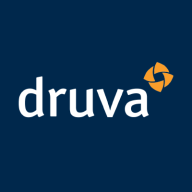

Druva Phoenix and Azure Site Recovery are competing data protection and disaster recovery solutions. Azure Site Recovery appears to have the upper hand due to its comprehensive feature set despite its higher costs.
Features: Druva Phoenix offers efficient cloud storage, rapid recovery capabilities, and scalable retention policies. Azure Site Recovery provides seamless integration with Microsoft services, customizable failover options, and extensive automation possibilities, often giving it an edge in feature depth.
Room for Improvement: Druva Phoenix could enhance its integration capabilities with non-VM environments and improve its AI for better analytics. Expanding support for various platforms like Hyper-V and Nutanix would also be beneficial. Azure Site Recovery may benefit from further simplification for smaller enterprises and could improve cost efficiency for enterprises not fully utilizing Microsoft ecosystems.
Ease of Deployment and Customer Service: Druva Phoenix has a straightforward deployment process and strong customer service, making it adaptable for various IT environments. Azure Site Recovery, part of the Azure ecosystem, requires a learning curve but benefits from Microsoft's extensive support infrastructure.
Pricing and ROI: Druva Phoenix is praised for lower initial setup costs and quicker ROI through efficient subscription plans. Azure Site Recovery, while more costly, offers value through feature-rich solutions that may justify the investment for those prioritizing comprehensive features.


Help your business to keep doing business - even during major IT outages. Azure Site Recovery offers ease of deployment, cost effectiveness, and dependability. Deploy replication, failover, and recovery processes through Site Recovery to help keep your applications running during planned and unplanned outages. Site Recovery is a native disaster recovery as a service (DRaaS), and Microsoft been recognized as a leader in DRaaS based on completeness of vision and ability to execute by Gartner in the 2018 Magic Quadrant for Disaster Recovery as a Service.
Druva Phoenix is a comprehensive cloud-based data protection and management solution that enables organizations to securely backup, recover, and manage their data across endpoints, physical servers, virtual machines, and cloud applications. With its scalable and flexible architecture, Druva Phoenix simplifies data protection and eliminates the need for traditional backup infrastructure.
By leveraging the power of the cloud, Druva Phoenix offers organizations a cost-effective and efficient way to protect their critical data. It provides automated backup and recovery capabilities, ensuring that data is always protected and easily recoverable in the event of a disaster or data loss. With its global deduplication and compression technology, Druva Phoenix minimizes storage requirements and reduces costs.
Druva Phoenix also offers advanced features such as point-in-time recovery, allowing organizations to restore data to a specific point in time, and granular file-level recovery, enabling users to recover individual files or folders. Its intuitive web-based console provides a centralized view of all protected data, making it easy to manage and monitor backups across the entire organization.
In addition to data protection, Druva Phoenix offers comprehensive data management capabilities. It enables organizations to gain insights into their data through advanced analytics and reporting, helping them make informed decisions and optimize their storage resources. Druva Phoenix also supports legal and compliance requirements by providing eDiscovery capabilities and ensuring data is retained and disposed of according to regulatory guidelines.
With its cloud-native architecture, Druva Phoenix offers organizations the flexibility to protect and manage their data across a wide range of environments, including on-premises, remote offices, and cloud applications such as Microsoft 365 and Google Workspace. It seamlessly integrates with popular cloud platforms like AWS and Azure, allowing organizations to leverage their existing cloud investments.
We monitor all Disaster Recovery as a Service reviews to prevent fraudulent reviews and keep review quality high. We do not post reviews by company employees or direct competitors. We validate each review for authenticity via cross-reference with LinkedIn, and personal follow-up with the reviewer when necessary.